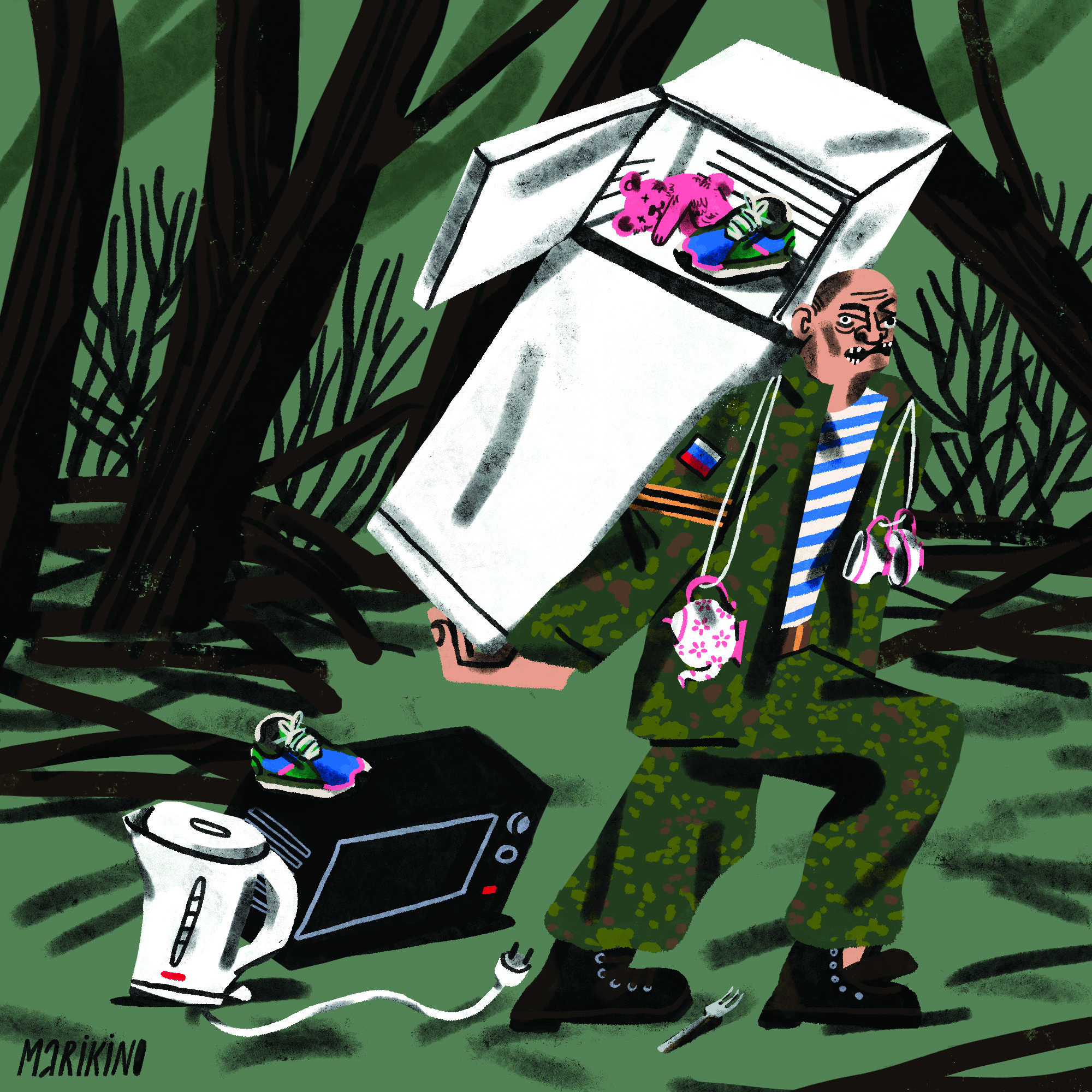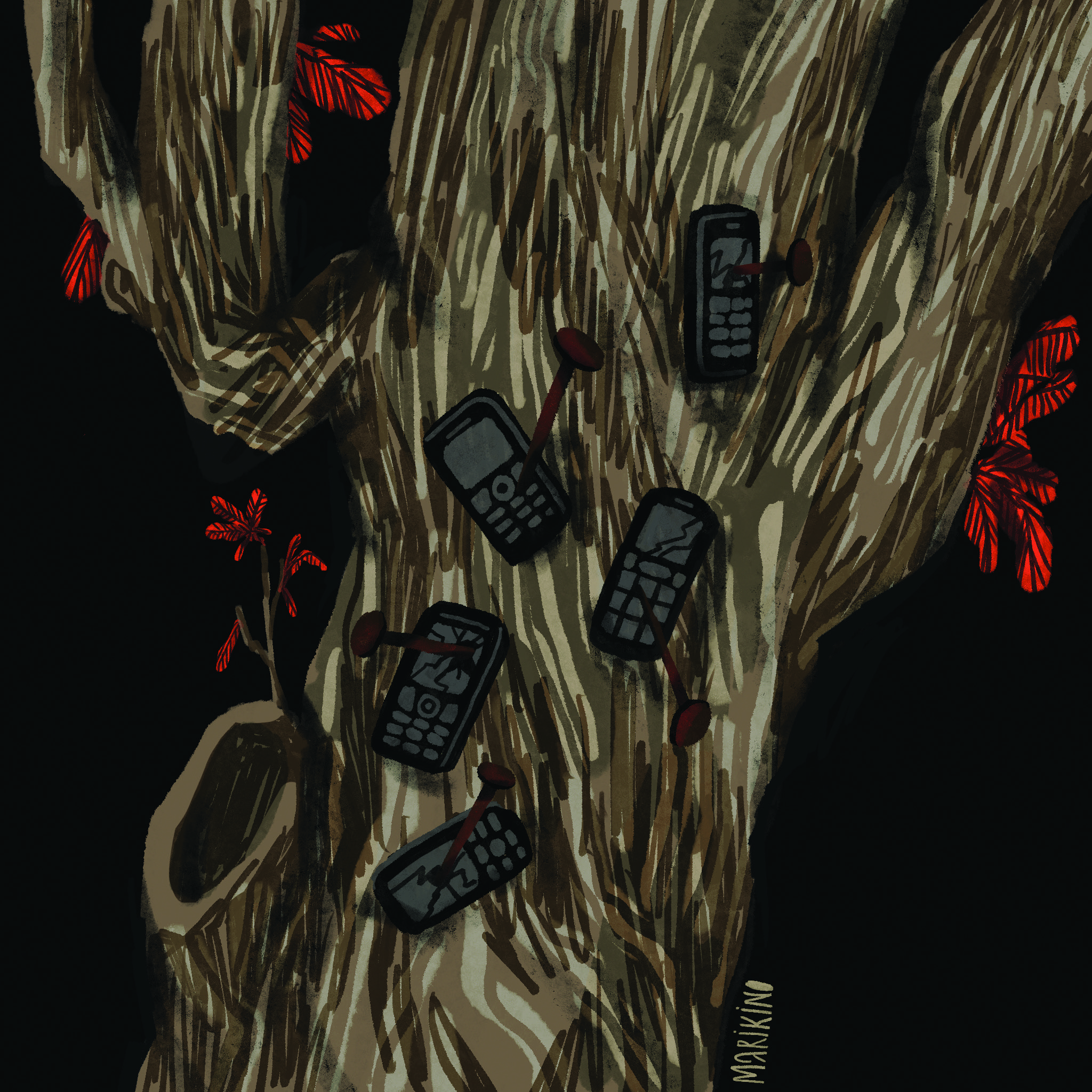Mari Kinovych
A Kyiv-based illustrator, Mari Kinovych works on projects ranging from ad commercials to book covers. In her personal projects, she tends to focus on gender equality, animal rights, sustainable living, and, recently, politics. Her latest works include illustrations for AdWeek, McDonald’s, The Economist, MacPaw, Heinrich-Böll-Stiftung, and Facebook. Books are Mari’s greatest inspiration, allowing her to create a whole new visual experience for the reader, even if working only with the cover. Mari has been working with calligraphy, animation, and graphics design, always experimenting with new things and combining different approaches. She also draws inspiration from art museums (especially Old Masters and Medieval art), good coffee, home plants, and dogs.
“The second army in the world turned out to rank first in looting. I was astonished that they took whatever they could when retreating from the Chornobyl nuclear power station—even forks and cups.”
There have been countless reports of Russian looting since the early days of the full-scale invasion. Russian soldiers shamelessly looted whatever they could lay their hands on: washing machines, kitchen utensils, carpets, and even children’s toys and women’s underwear. It’s been reported that 58 tons worth of packages were shipped to Russian cities from towns on Russia’s and Belarus’ border with Ukraine. The soldier depicted on the poster is busy lugging a fridge, electric kettle, microwave, and a pair of New Balance sneakers looted from a Ukrainian home.
“One of the first things Russians do when they seize some territory is to take away or destroy smartphones so that people would not be able to communicate and get news. Some people kept old push-button phones in secret. In the village of Kozacha Lopan (Kharkiv region), if Russians found the phones during regular searches, they nailed them to a tree as a demonstration of Russian terror. I can only guess what happened to the owners of these phones.”
After Kozacha Lopan, a village in the Kharkiv region, was liberated, people discovered a tree with dozens of phones nailed to its trunk. Russians had taken away the phones from the locals and hammered them into the tree to terrorize people and demonstrate their power. Dozens of people have been found tortured to death.


